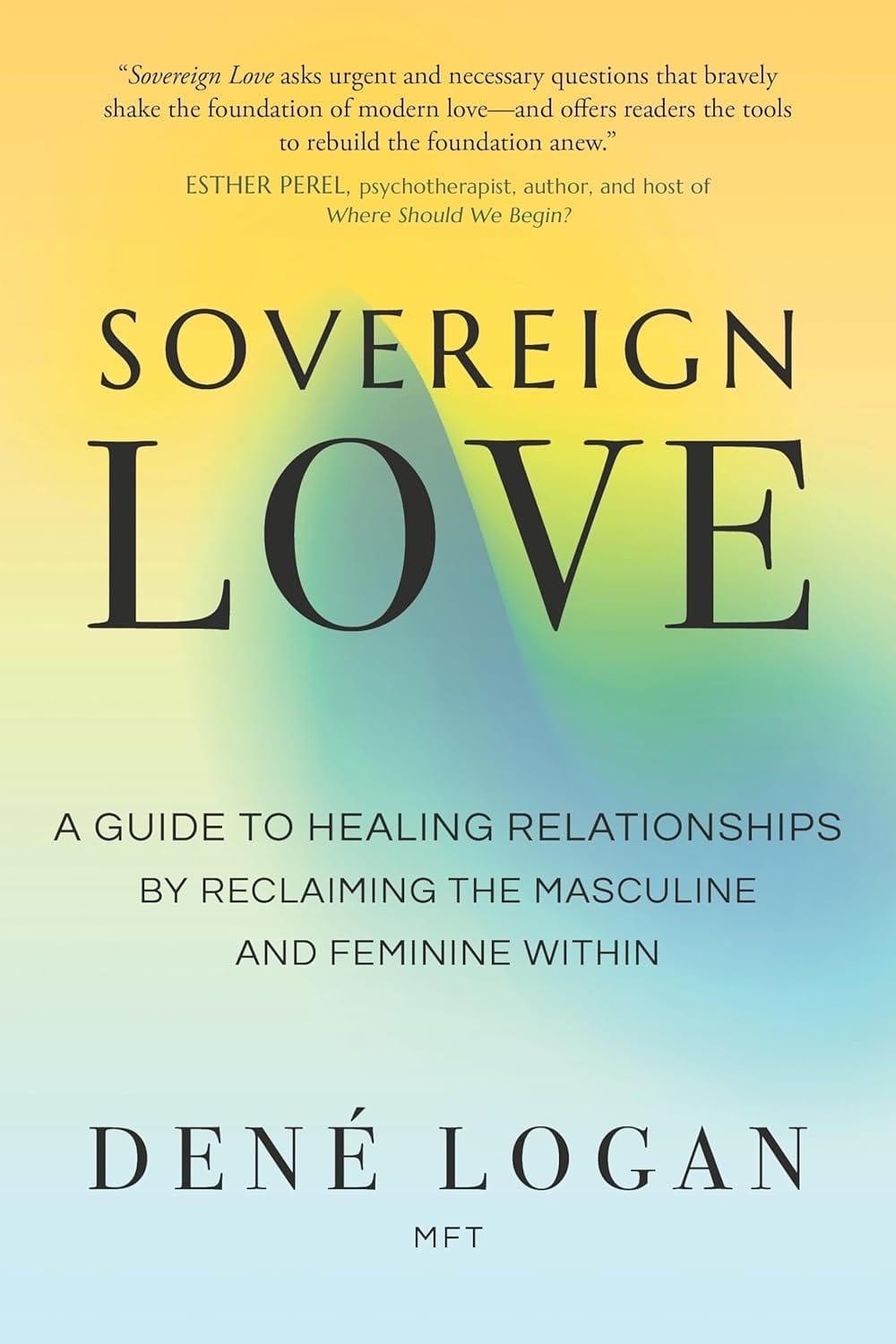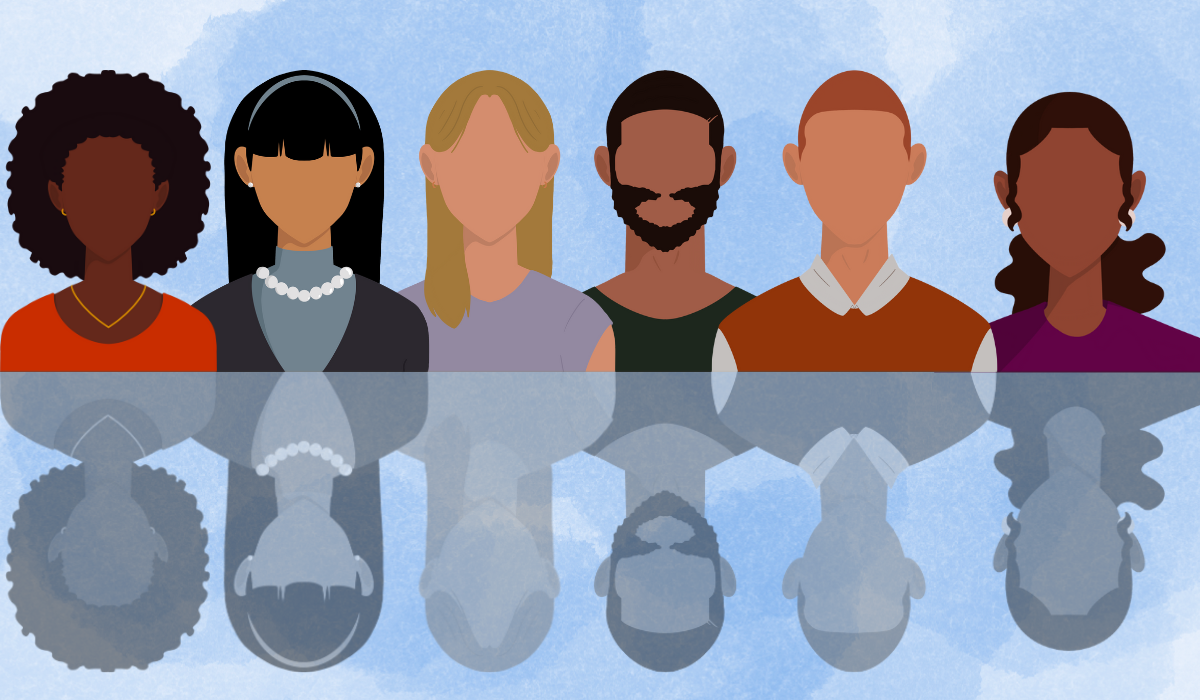What Is the Viral Shadow Work Trend? Therapist Dené Logan Explains
Shadow work is the practice of taking a deep look at the unconscious parts of ourselves. Legendary Swiss psychologist Carl Jung is widely noted for using the term “shadow” to refer to these tucked-away aspects, which we often reject or refuse to acknowledge, and that can get triggered by others. Since then, large swaths of the psychotherapy field have adopted shadow work for its ability to unlock deep learning, compassion, emotional freedom, and even purpose. “There are all these different ways that I see elements of it in the various modalities of psychotherapy,” says Dené Logan, a licensed marriage and family therapist and author.
Logan sees shadow work as a transformative invitation. When we become activated by a person or situation, she says that's a message telling us there’s an unaddressed aspect of ourselves coming to the surface to look at and understand so "we can be more embodied."
What’s particularly compelling here, and what Logan illuminates, is how this work extends beyond the self. If we keep our unconscious tucked in “the basement,” as she says, we risk letting it rule our lives and impact our relationships. But when we’re willing to pause and look at our darkness, we can reveal shimmering gold—for ourselves, our communities, and the world.
A CONVERSATION WITH DENÉ LOGAN
Shadow work has been around for a while, yet the premise can still feel esoteric, even with its popularity. How do you describe shadow work, and who is our Shadow?
I like to think of our shadow as the unintegrated aspects of self. Our shadow can be the dark areas and the golden areas of who we are that we have been conditioned to reject within ourselves to form our personality and to create a sense of belonging in the world. We have rejected these parts of ourselves to be acceptable according to who the world has conditioned us to believe we must be. When I talk to clients about shadow work, I say it's like we go into the basement of our psyche and gather up all the relegated parts that we've thrown down there and don't want to look at and unearth them. We bring those parts to the surface and ask them to sit down and tell us what information they have for us to learn.
What is the cost when we don't do shadow work and keep those parts in the basement?
When our shadow is unintegrated, it's really running the show of our life without us being aware. Carl Jung said, "Until you make the unconscious conscious, it will direct your life and you will call it fate." I do a lot of work with relationships, and what's always so interesting to me is the extent to which we choose partners that are the unintegrated aspects of ourselves, our shadow. A lot of times, the parent that we had the most challenging relationship with is the type of person that, for whatever reason, we are really drawn to in relationships. We just can't let go of that relationship or person because it activates elements of our shadow, which I believe are a divine invitation to heal.
I often give the example of the politician who has an unintegrated relationship with their own sexuality or sensuality and does all this work against sex work but then sees a bunch of sex workers on the side. It is about the parts of ourselves that we believe can't be seen or addressed but then start to run our lives and have power over us in ways we haven't acknowledged.
How has shadow work played a role in your life?
For me, shadow work has become a superpower in my life because when anyone activates me, I know some unaddressed aspect of my shadow is coming to the surface for me to look at. So, if someone has a personality that is like nails on a chalkboard to me, or if someone is activating me in a way that I just can't let go, I know to do some shadow work. What I look at is, What quality within them that's activating is alive somewhere in me? That could be the dark shadow that I don't want to acknowledge. And another way to look at it is, How could it be useful for me to show up a little bit more in the way that person shows up? Suppose that person takes up a lot of space and is unapologetic about their perspectives, and I happen to struggle with that. That might be the golden shadow, a part of me that I'm scared to embody because maybe growing up, it wasn't safe to be the boldest version of myself. Maybe I knew a parent or caregiver would reject me, and so I learned to suppress that aspect. So now, it's a part of myself that's being invited to come up so that I can be more embodied.
Do we all have a shadow? Not to be contrarian, but someone might be reading this and thinking, I don't have a shadow.
Ooh, I'd say, please, let's sit down and get into it!
What I always see come up is the golden shadow. I was just leading a workshop where we did shadow work, and everyone could find their golden shadow. People would see, Oh yes, I could use a bit more of that or be a bit more like that. But the deeply challenging part of this work is looking at our blind spots and our dark shadow, the shadow in us that we don't want to acknowledge lives in us.
This is such important work, but as you're saying, aspects to this are challenging. Considering how hard life is and how tough our world is, what is a gentle starting point for looking at our shadow?
It can be so simple. It's about slowing down our process. Starting out, it can be as simple as when there's a huge activation within you, just asking, 'How do I just get into a space of curiosity?'
There's an old saying, "If it's hysterical, it's historical." If something brings a massive charge within you, there's something historic there. There's something in the past that this is reminiscent of, otherwise it wouldn't have such a big charge. And what I have found about shadow work is that's always the case. If something is really activating to me, I know it's some part of my shadow, so I need to slow down a little and try to get into a relationship with it. For me, this can become my first response: If I get activated, I'm like, Oh, hold on, I've got to slow down and do work around this because there's something here.
Why does humanity need shadow work right now?
Many of the things we call our personality traits are survival mechanisms that we develop early in childhood based on what we need to do to keep ourselves safe. So, for somebody who's an over-functioning people pleaser, and that's how they show up in their relationships, they may say, 'Well, that's just who I am. I'm the one who does all the things for everyone.' But some things come up when I sit with someone like that and have a deeper conversation. We usually see the questions, 'Is that my personality, genuinely?' or maybe it's, 'When I was young, my parents were busy and didn't have a lot of time to tend to what came up for me emotionally, and so I tended to myself, and I got positive feedback for doing that.' So we start to see that it may not be our fundamental personality as it is a conditioned response for survival and the messaging we receive. That is where shadow work starts to be integrated with re-parenting work; really going back to that younger version of ourselves and holding and seeing—with so much compassion—why we were conditioned to do what we've done. Then we ask if it's still true. 'Do I always have to be the one that's got everybody covered?' Often, what I find with these things that we call personality traits right below the surface is a lot of exhaustion and resentment. We may love to have more of something, but we don't think it's possible because we've never experienced it. This is all to say that the larger reason for doing this work is liberation. There are ways we can find such freedom when we put down some of the conditioned ways of being that were never ours to carry. And the more compassion we have for ourselves, the more we can hold compassion for everyone around us.
When we're looking around at the world as it is right now and the current state of all the struggles, I believe if everyone pauses to really take their own 100 percent and see how they can start to cultivate a little bit more compassion in themselves, then it starts to create a ripple. When I look at some world leaders, nobody has tended to their inner child. Nobody has taught them how to take responsibility for their shadow, so they feel like power needs to show up in a specific way to feel safe in the world.
Until we slow down for a second and get into the inquiry, it feels easier to keep charging forward in the way we've always done things. But in reality, it's taking up so much energy, it's making us sick, and it's making our relationships unfulfilling.
Let's touch on relationships more, because relationship work is a large part of your focus and your book, Sovereign Love. Will you discuss how shadow work can impact our relationships and wider communities?
There is the individual shadow, and there is also the collective shadow. Again, the shadow is the unaddressed aspects of self, but that can also be the larger collective self and the things we've never had a reckoning with or brought up for us to examine. We are living through a very particular moment in history where there's the collective shadow of a patriarchal structure of society that is coming up for us to look at in ways that we never have before. We're seeing how some of our relationship structures were formed from dominance and ownership templates, certainly of women. It wasn't until 1974 that women could open their own bank accounts. That's so recent! So much of our decision-making was contingent on what we had to do for survival, much of which we're still carrying. The patriarchal structure also has been damaging to men. There are not a lot of healthy models of what integrated healthy masculinity looks like today. All of this is to say that we are being called to do the deeper layers of our inner work. It's about asking ourselves, 'Did I choose this relationship from some of the unintegrated aspects of my shadow?' And if I did, it's not to shame myself. I did what I knew how to do until I knew how to do something different.' And now, it's about asking, 'How do I take responsibility for the life that I want to live? How do I create what I want moving forward?
It's such an exciting time to be alive because I see more and more people doing that and saying, 'I'm not afraid anymore.'

Dené Logan, MFT, is a marriage and family therapist, spiritual teacher, and author. She is the co-host of the podcast Cheaper Than Therapy, which offers a behind-the-scenes look at sessions with actual clients, interviews with experts in the field of mental health and wellness, and more. Visit denelogan.com to learn more and order her book Sovereign Love here.
Please note that we may receive affiliate commissions from the sales of linked products.



